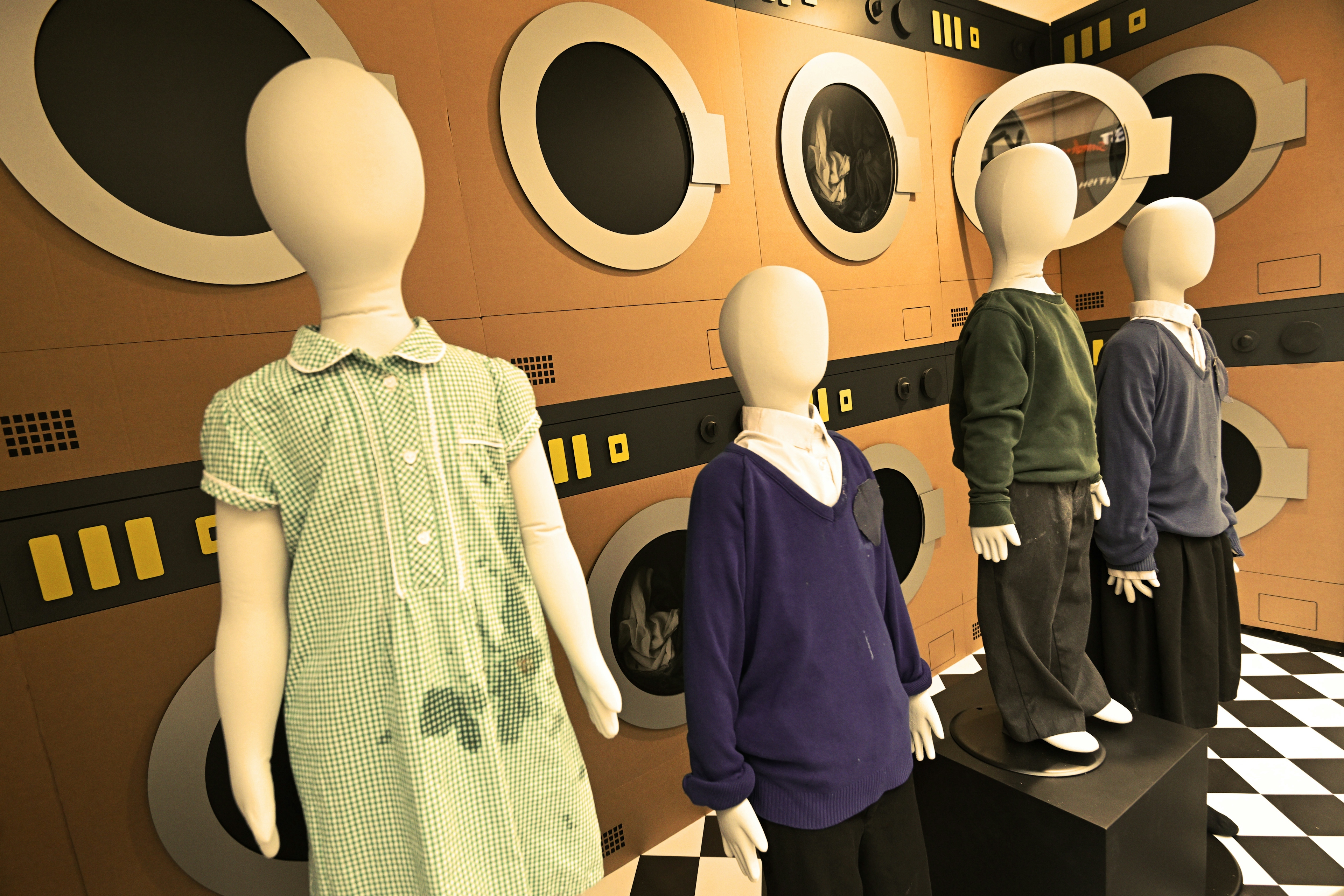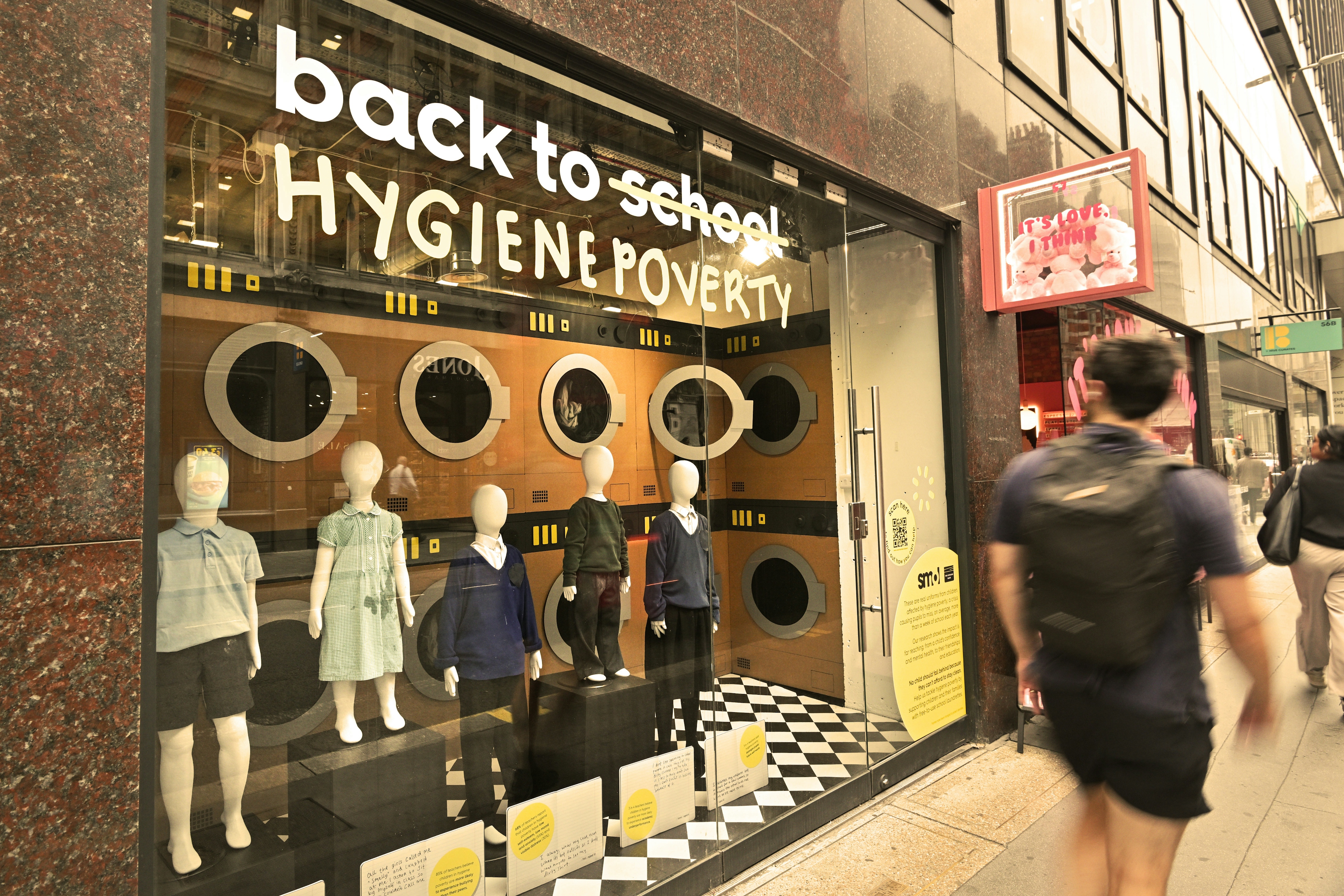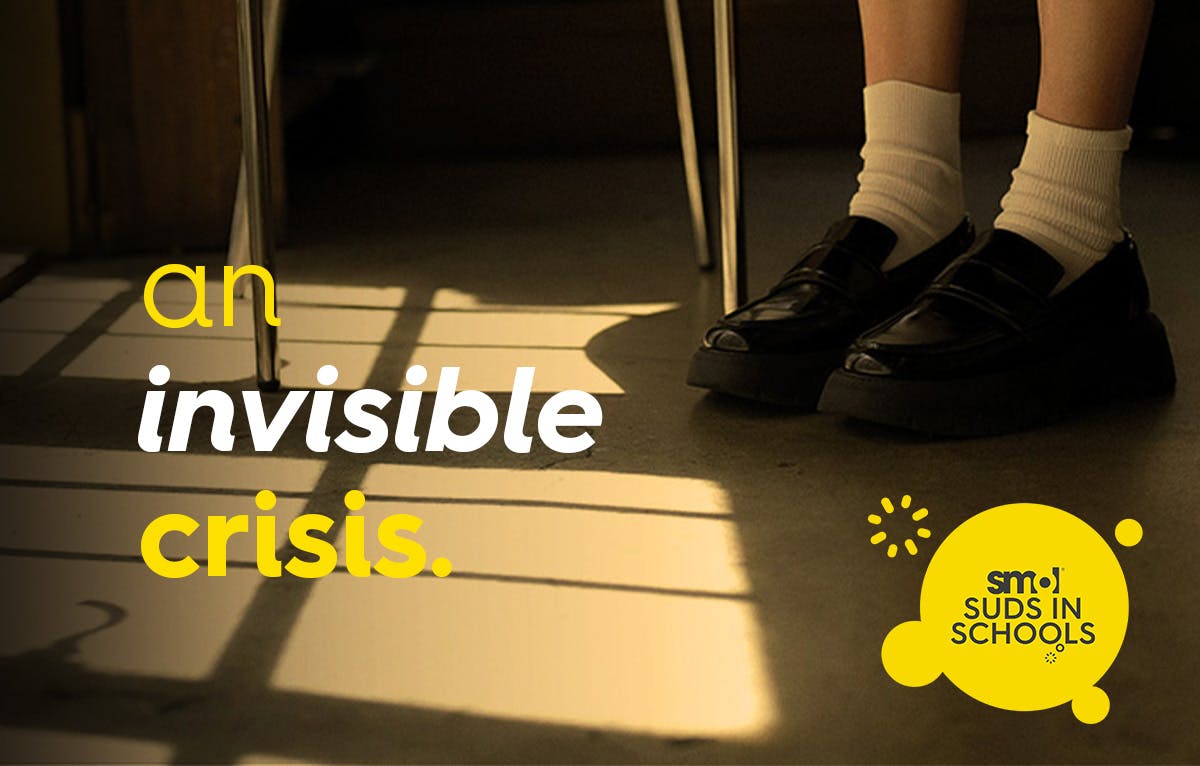20 Aug 2025
back to school, but not for all.
- 1 in 5 UK children are living in hygiene poverty
- Many miss school because they don’t have clean clothes
- It’s the most stigmatised form of poverty in UK classrooms
- We took over a London shop window, but not with shiny new uniforms
- Real clothes from real kids marked absent for reasons that are fixable
smol’s Suds in Schools programme is changing that, but we need your help to reach more schools.
Hands up if your back-to-school checklist looks a bit like this:
- New uniform?
- Fresh haircut?
- PE kit?
- Desperate cupboard ransacking for a matching water bottle lid?
But for 1 in 5 UK children, that list looks very different.
If you’re a kid living in hygiene poverty, you’re not picking out new lunchboxes or pencil cases… you’re wondering if you’ll be laughed at for wearing the same unwashed shirt you wore at the end of the school term.

a window into their world.
To shine a light on this invisible crisis, we took over a shop window in London with a “Back To School” display, with support from The Hygiene Bank charity.
BUT, instead of shiny new shoes and fresh uniforms, we dressed the mannequins in real clothes from real children who are experiencing hygiene poverty right now as part of our Marked Absent campaign.

Some pieces were visibly stained. Others looked fine at first glance, but it’s not just the things you can see that let you know these items haven’t been washed in weeks.
These are the children our Marked Absent campaign is standing up for. Those marked absent from school registers and marked out by the stains on their uniforms.
the cost of a dirty shirt?
What’s the big deal about an unwashed uniform? Well for starters:
- Feelings of shame for the child affected
- Exclusion by their peers
- Bullying in the playground
- oh … and on average around 6 missed school days for this reason alone
Yep. Children living in hygiene poverty miss an average of 6.5 school days a year.
That’s over a full week of school lost, just because they don’t have clean clothes to wear.
And the damage doesn’t stop there:
“Some students have really bad hygiene, and it's difficult to bring this up with their parents. It is upsetting when they get bullied because of this.” UK state school teacher
“There was a small little boy who was affected by hygiene poverty. He was teased by other kids in his class and he was not very social at all, and I think this impacted his learning.” UK state school teacher
- 88% of teachers say it leads to low self-esteem
- 83.6% say it causes social isolation
- 91% believe it affects children’s long-term confidence and future opportunities
Tackling hygiene poverty isn’t just about laundry. It’s about dignity.
schools are stepping in…
But they need support.
From loaning spare uniforms to keeping hygiene products in the staff room cupboard, 90% of UK schools are already helping pupils in hygiene poverty, despite not being funded, trained, or expected to.
“We quietly support pupils with clean uniform and hygiene supplies when it’s needed. It might seem small but it changes everything.” UK state school teacher
what we’re doing.
That’s why we launched Suds in Schools, installing washing machines in schools across the UK so staff can discreetly wash uniforms and give children the confidence to show up and join in. Thanks to the incredible generosity of smol customers, we now have 103 sites up and running and the impact it’s having is amazing.
We’re also:
- Equipping schools with teacher training packs in the new term
- Sharing our latest research with policymakers and press
- Growing our community of support through the Donate a Wash programme
But with the new school year upon us, Marked Absent is our reminder that there’s more to do and more schools still in need of support.
how you can help.
- Know of a school that could use a laundry facility? Let us know
NOMINATE A SCHOOL IN NEED - Donate if you can. Every contribution helps us fund more machines and provide more support.
DONATE TO SUDS IN SCHOOLS - Share on your socials or via email. Awareness is powerful.
Together, we want to ensure no child is marked absent for something that’s entirely preventable.
school hygiene poverty FAQs.
what is hygiene poverty?
Hygiene poverty means not having access to the basic products or facilities needed to stay clean. For children, that often means no clean clothes, no toiletries, and no way to wash. It’s invisible, isolating, and deeply stigmatised (especially at school).
how many children are affected by hygiene poverty?
According to UK state school teachers, 1 in 5 children are currently living in hygiene poverty. That’s two in every classroom.
how does hygiene poverty affect school attendance?
On average, children affected by hygiene poverty miss 6.5 days of school each year. That’s almost a full week, missed not for illness or holidays, but for want of clean clothes.
isn’t this the responsibility of parents?
Hygiene poverty is very much a symptom of broader poverty, and families affected are often in full time employment, doing everything they can, with very limited means. smol believes no child should be penalised for their circumstances. Clean clothes shouldn’t be a privilege.
what is Suds in Schools?
Suds in Schools is smol’s initiative to install washing machines in UK schools, giving staff a discreet, practical way to wash clothes for pupils in need. It’s already operating in over 100 schools, with more launching soon.
